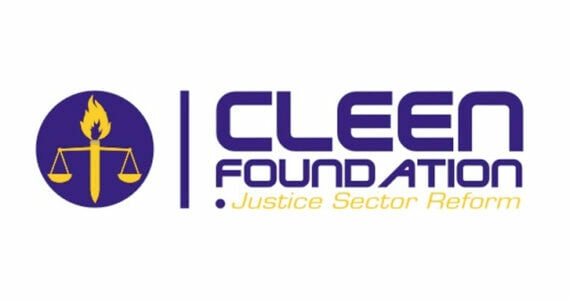The CLEEN Foundation (CF), a civil society organisation (CSO) has expressed dismay at the poor administration of Criminal Justice Law (CJL), noting that deficit in funding, human capital and other challenges had combined to hamper effective enforcement of such legislations.
Speaking at the ongoing two- day capacity-building workshop aimed at strengthening the implementation of the CJL in Uyo, the Akwa Ibom State capital, participants called for improved institutional commitment, skills development and inter-agency collaboration in the reforms process.
Speaking at the forum, the acting executive director of the Foundation, Mr. Peter Maduoma, said the workshop became necessary in order to address gaps in the enforcement and application of the CJL, which was enacted in Akwa Ibom in 2022 “to advance a fairer and more transparent justice system.”
He pointed out that since the passage of the CJL in the state, challenges such as inadequate budgeting, insufficient resources for statutory bodies like the Administration of Criminal Justice Monitoring Committee (ACJMC), and limited capacity among judicial and law enforcement officers have hindered effective implementation.
The workshop has as theme; “Strengthening Rights-Based Approach to CJA Frameworks and Advancing Women, Peace, and Security in Nigeria,” funded by the Norwegian Ministry of Foreign Affairs through the Norwegian Embassy in Nigeria.
He recalled that the project was launched on August 26, 2025, in Abuja, adding that it was currently being implemented across 12 states including Akwa Ibom, Lagos, Kaduna, Enugu, Ekiti, Plateau, and Cross River states.
According to him, “The workshop will equip participants drawn from the Police, Judiciary, Correctional Service, and other law enforcement agencies with the technical skills to apply the provisions of the ACJL effectively, monitor compliance, and reduce rights abuses, trial delays, and custodial congestion.”
“The CJL sets high standards for policing, law enforcement, and judicial operations. To ensure its success, we must build the skills of stakeholders and establish mechanisms for sustained compliance.
“This workshop is designed to deepen understanding, bridge knowledge gaps, and strengthen collaboration across institutions involved in criminal justice delivery.” he stressed.
Maduoma, however listed the the specific objectives of the training to include enhancing practical knowledge of the ACJL, building systems for monitoring and evaluation, promoting rights-compliant enforcement, and developing strategies to address systemic challenges within the justice sector.
His Foundation, he assured, would leverage its 27 years of experience in security sector reform and criminal justice advocacy to support the process, and expressed optimism that the engagement would help identify gaps and articulate strategies for improved implementation and reforms.
He, therefore, acknowledged the support of the Norwegian Embassy and commended stakeholders for their participation, urging them to contribute actively toward strengthening justice delivery in the state.
“Everyone here is a critical stakeholder in the actualisation of the goals of this workshop. We solicit your commitment to making strategic contributions that will move the system forward,” he stressed.





